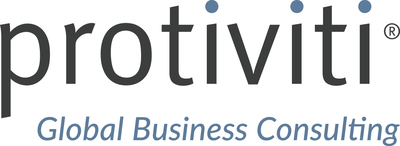Technical Debt and Skills Shortages Threaten to Stifle Innovation, According to Protiviti Survey
Artificial intelligence, Web3 and robotics top the list of emerging technologies CIOs, CTOs and other technology leaders seek to implement in the next three years
As technology leaders navigate the hype cycles of emerging technologies like Web3 and the metaverse, they are also contending with obstacles such as technical debt, a shortage of talent and skills, and a turbulent global economic environment that is prompting companies around the world to examine their broader innovation strategies along with their spending on new technologies.
While the Protiviti study, titled, "
"When it comes to developing smart innovation strategies, technology leaders must ask themselves if they're innovating to achieve a specific business goal," said
Obstacles to Innovation
Technical debt, the accumulated cost of maintaining and supporting legacy IT systems, is a leading obstacle that impacts nearly
The talent war, one of the top risks facing organizations today, is also affecting technology teams, challenging leaders to attract and retain top talent. Complicating matters is the need to ensure that new hires and current technology employees have the necessary skills for the next generation of emerging technologies. Among respondents, the largest talent gaps organizations face are in the areas of design thinking (
Strategies for Driving Technology Adoption and Innovation
While cloud and the Internet of Things (IoT) have become table stakes for organizations, the pace of their adoption is showing promising signs for other emerging technologies. Among the top technologies organizations are planning to implement in the next three years are:
- Web3 (
41% ) - Robotics (
38% ) - Low code/no code platforms (
38% )
"Companies need to ignore the noise of buzzwords, and instead focus on understanding the capabilities that emerging technologies bring. Rapid technology innovation is here to stay and will have a profound impact on business in the coming years," said Christine Livingston, a managing director in the
When it comes to the use of innovation strategies, according to the survey,
Survey Methodology
Protiviti surveyed 1,050 CIOs, CTOs, CISOs and other technology executives and leaders at organizations across a broad range of industries globally. The majority of respondents' companies had revenues of
Survey Resources Available
The survey findings, an executive summary and an infographic are available here. Protiviti will host a complimentary webinar on
About Protiviti
Protiviti (www.protiviti.com) is a global consulting firm that delivers deep expertise, objective insights, a tailored approach and unparalleled collaboration to help leaders confidently face the future. Protiviti and its independent and locally owned Member Firms provide clients with consulting and managed solutions in finance, technology, operations, data, digital, legal, governance, risk and internal audit through its network of more than 85 offices in over 25 countries.
Named to the 2022 Fortune 100 Best Companies to Work For® list, Protiviti has served more than 80 percent of Fortune 100 and nearly 80 percent of Fortune 500 companies. The firm also works with smaller, growing companies, including those looking to go public, as well as with government agencies. Protiviti is a wholly owned subsidiary of
Protiviti is not licensed or registered as a public accounting firm and does not issue opinions on financial statements or offer attestation services.
Editor's note: Photos and infographic are available upon request.
![]() View original content to download multimedia:https://www.prnewswire.com/news-releases/technical-debt-and-skills-shortages-threaten-to-stifle-innovation-according-to-protiviti-survey-301784342.html
View original content to download multimedia:https://www.prnewswire.com/news-releases/technical-debt-and-skills-shortages-threaten-to-stifle-innovation-according-to-protiviti-survey-301784342.html
SOURCE Protiviti








